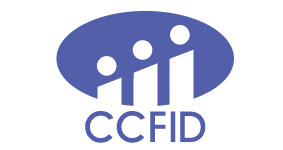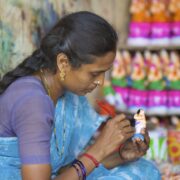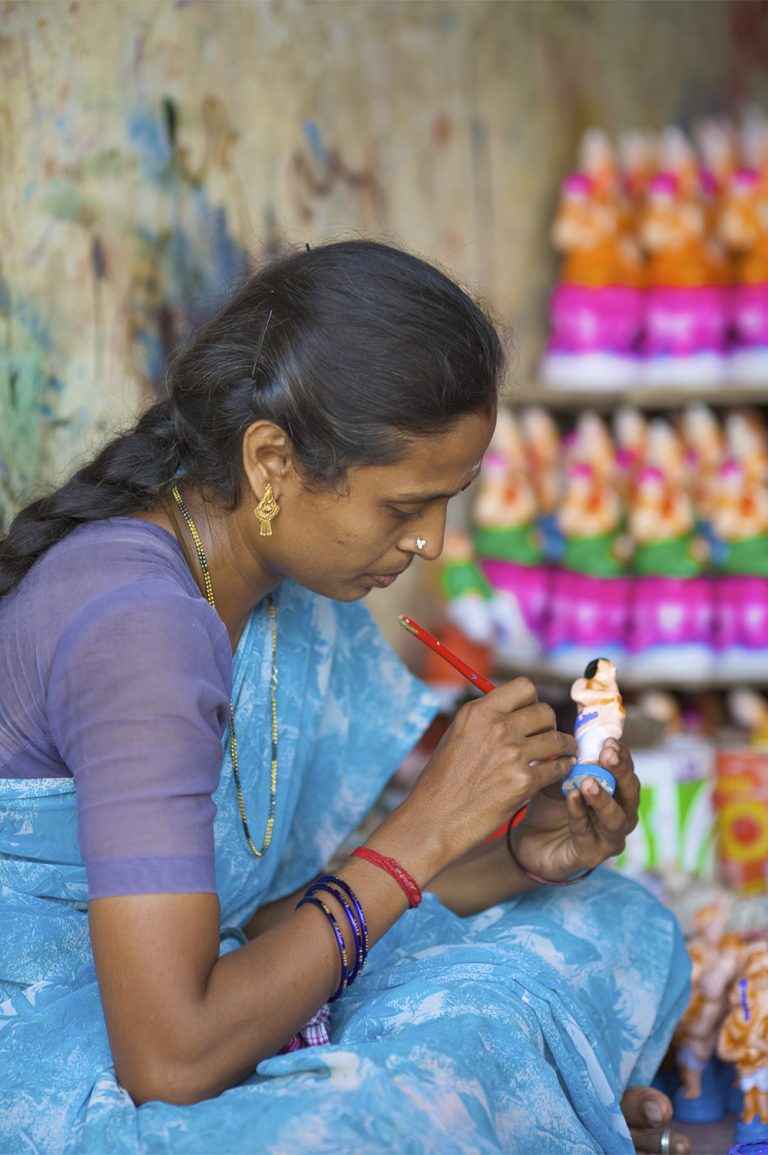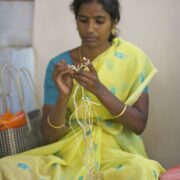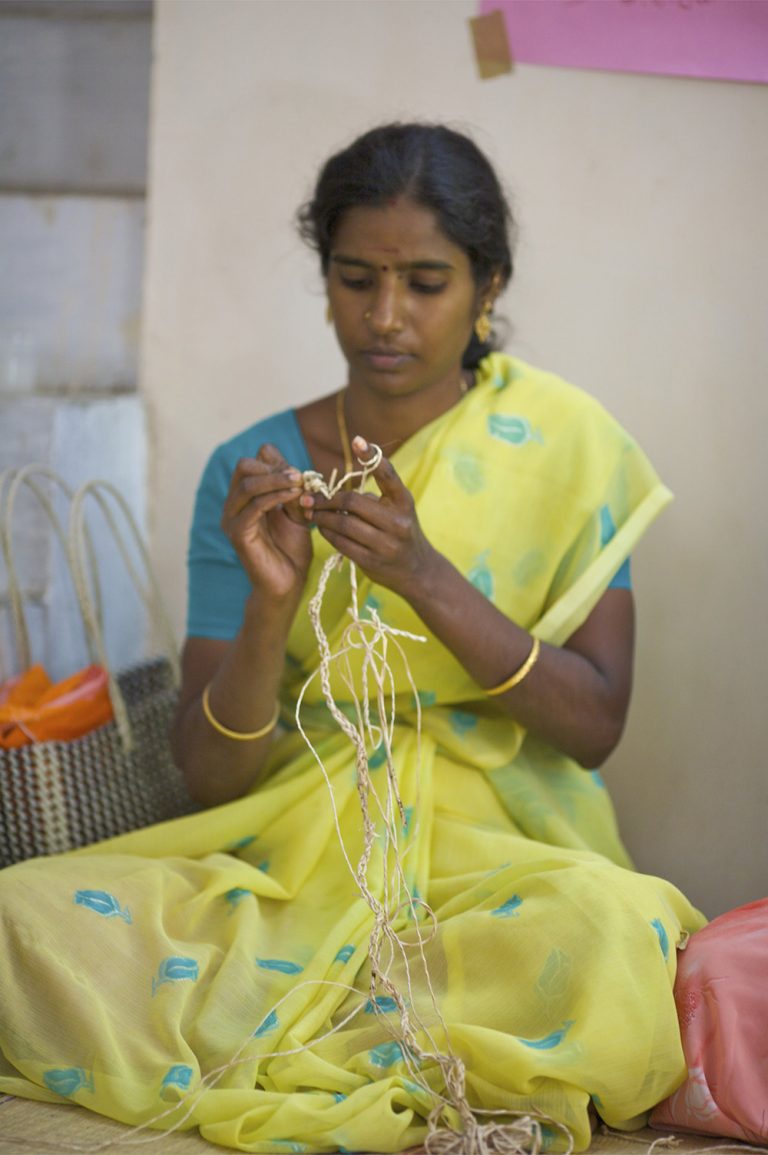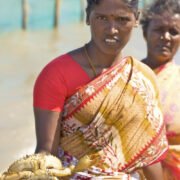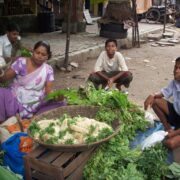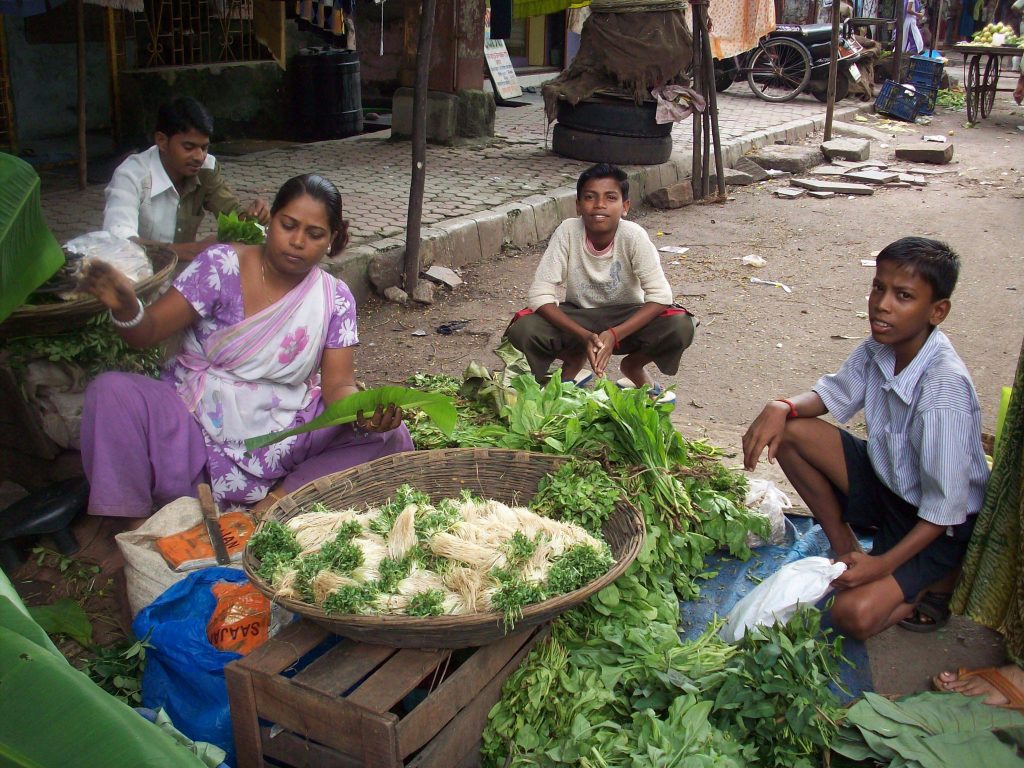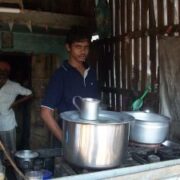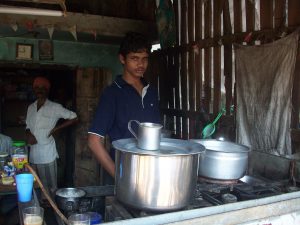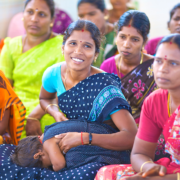
Livelihood
Through its livelihood support service, CCFID aims to facilitate the development of marginalized and poor families through various livelihood promotion programmes. CCFID’s key programmatic focus areas are:
Cluster, Sub-sector and Activities
The approach to livelihood promotion is three fold that entails support to enterprise clusters, conduct sub-sector studies for exploring livelihood opportunities and also encourage group and individual based enterprises.
Employability and Entrepreneurship skills
Provide orientation and engage in knowledge building for orienting youth to employment & entrepreneurship, managing work life and enhancing marketable skills.
Institution Building
This includes setting up of activity groups and institutionalizing livelihood promotion through a single window – could be Federation, Producer Company or Resource Centre.
Gender Balance
The end impact monitoring is at household level. Hence, CCFID’s livelihood promotion activities are amongst women and men, especially youth men.
Partnership approach
This involves continuous “engagement” with community to ensure symbiotic and organic link to all implementation activities. CCFID also works with government, private and civil society organizations.
the organization’s engagement with the affected communities is more than typical for the following aspects:
- Community based structures have been set up for both women and youth (men and women).
- Besides, direct livelihood promotion activities, CCFID focuses on sub-sector interventions and there by enhanced livelihood opportunities.
- Uses microfinance and livelihood promotion as complementing strategies.
- Has formalized the plan to set up Livelihood Resource and Training Centre.
- Aims to equip women and youth with employability skills that will provide livelihood security and would enable them to cope with any future disasters (natural or human induced).
- Adopts an “inclusive” approach, by covering those who were indirectly affected by tsunami, those in second line villages and/or those along the supply value chain.
- Provision of business counseling and mentoring support to women and youth, especially the vulnerable and those affected by tsunami.
- Provision of information on viable enterprising opportunities and job availability.
- Supporting preparation of business plans, explore investment options and market tie-ups.
- Engage in public-private partnership for skill enhancement.
- Augment availability of financial services to promote sustainable livelihoods.
- Designing innovative livelihood financing products.
A fledgling organization when the tsunami struck CCFID’s focus on livelihood development targeting women and youth positioned the organization well to play a key role in addressing long-term livelihood needs. IYF selected CCFID to implement the Tsunami Reconstruction Initiative in India based on its role as a locally-rooted, professionally-run organization capable of delivering on the Initiative’s goals. Having responded to the tsunami with an immediate donation of funds and in-kind support, Nokia conceived of the Initiative as a means of promoting long-term recovery in affected regions.
CCFID’s efforts in India directly impacted the lives of 7,014 young people and indirectly benefited more than 26,000 youth and community members. More than 1,900 youth received skills training, with 80% securing jobs. Over 5,800 loans were made over three years, totalling US$880,000, enabling 1,500 small enterprises to take root. From cashew processing to soda making, from sari weaving to handicraft production, CCFID contributed to the creation of a range of local businesses. Long-Term outcomes improved income During the program period, CCFID launched the Livelihood Resource and Training Centre (LRC) to provide customized and non-financial services to better meet the needs of youth entrepreneurs and women. Recognizing that most microenterprises lack market linkages and access to business development services, the LRC works to fill these gaps.
‘Our greatest achievement has been creating a sustainable income for the tsunami-affected population. Other charities provided supplies and materials but there was no long-term plan to support youth.’ — R. Sudhakar, Chief Executive Officer, Community Collective Society for Integrated Development
